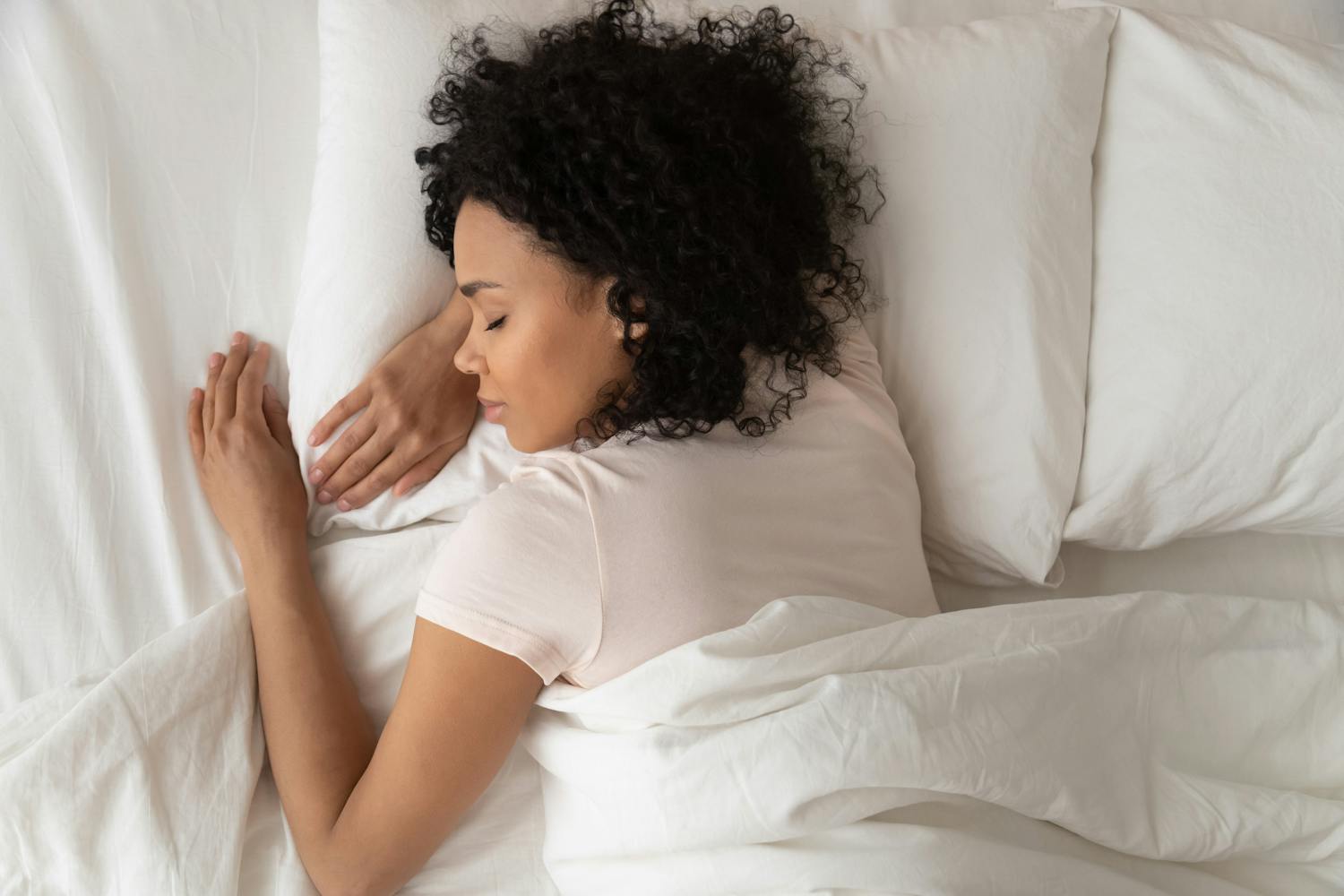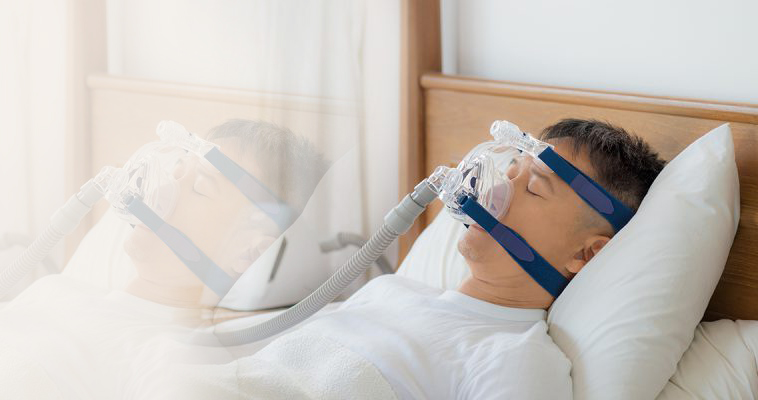Effective Treatment Solutions for Managing Sleep Disorders and Enhancing Restful Rest
In the realm of medical care, the administration of rest conditions and the quest for relaxed sleep are critical components of general wellness. As we browse the intricate landscape of rest disorders and look for to boost our sleep experience, a deeper understanding of these treatment solutions may hold the secret to opening a more relaxing and meeting restorative journey.
Cognitive Behavioral Treatment for Sleeplessness (CBT-I)
Cognitive Behavior Modification for Sleeping Disorders (CBT-I) is a structured, evidence-based treatment approach that concentrates on addressing the underlying factors adding to sleep disturbances. This type of therapy aims to customize habits and ideas that worsen sleep problems, eventually promoting healthy and balanced rest patterns. CBT-I usually entails a number of key elements, including cognitive therapy, sleep constraint, stimulation control, and sleep health education and learning.
Cognitive therapy assists people identify and change unfavorable thought patterns and beliefs about sleep that may be hindering their capacity to drop or remain asleep. Sleep limitation includes limiting the amount of time invested in bed to match the person's actual sleep period, thereby enhancing rest effectiveness (insomnia specialist). Stimulus control methods help establish a solid association in between the bed and sleep by encouraging people to visit bed only when drowsy and to stay clear of involving in promoting activities in bed
Additionally, sleep hygiene education and learning concentrates on establishing healthy rest practices, such as maintaining a constant sleep timetable, producing a relaxing bedtime regimen, and enhancing the sleep setting. By attending to these elements comprehensively, CBT-I provides an effective non-pharmacological treatment for managing sleep problems and enhancing total sleep top quality.
Sleep Hygiene Practices
Having developed the foundation of cognitive restructuring and behavioral alterations in attending to sleeping disorders with Cognitive Behavioral Therapy for Insomnia (CBT-I), the emphasis currently shifts in the direction of exploring essential Rest Health Practices for preserving ideal rest top quality and total well-being.
Rest health practices include a series of practices and ecological factors that can substantially influence one's ability to go to sleep and remain asleep throughout the evening. Consistent sleep and wake times, creating a relaxing going to bed routine, and enhancing the rest setting by keeping it dark, peaceful, and cool are critical components of great sleep hygiene. Restricting direct exposure to screens before bedtime, preventing energizers like high levels of caffeine near bedtime, and taking part in normal exercise during the day can additionally promote better sleep top quality.
Moreover, practicing relaxation techniques such as deep breathing workouts or meditation prior to bed can aid relax the mind and prepare the body for rest. By integrating these sleep hygiene techniques right into one's day-to-day regimen, individuals can develop a healthy and balanced rest pattern that supports relaxed rest and overall health.
Leisure Techniques and Mindfulness
Executing relaxation strategies and mindfulness methods can play a critical role in cultivating a feeling of calm and promoting top quality sleep. sleep deprivation help. These methods intend to quiet the mind, reduce stress, and create an optimum atmosphere for peaceful sleep. One extensively practiced approach is deep breathing exercises, where people focus on slow-moving, deep breaths to unwind the body and mind. Modern muscle mass leisure involves tensing and afterwards releasing each muscular tissue group, advertising physical relaxation. In addition, assisted imagery can aid move people to a serene place in important source their minds, assisting in stress reduction and boosting sleep quality.
Mindfulness techniques, such as meditation and yoga, are likewise efficient in promoting relaxation and enhancing sleep. Mindfulness encourages individuals to remain existing in the minute, allowing go of bother with the past or future. By incorporating these practices into a bedtime routine, individuals can signal to their bodies that it is time to relax and prepare for rest. On the whole, integrating relaxation strategies and mindfulness practices can substantially add to taking care of rest disorders and enhancing general sleep high quality.

Medicine Options for Sleep Disorders
After discovering relaxation methods and mindfulness techniques as non-pharmacological interventions for boosting sleep high quality, it is necessary to consider medicine options for individuals with rest conditions. In cases where way of life modifications and therapy do not offer sufficient alleviation, medication can be an important tool in managing sleep disturbances.
Typically prescribed medicines for sleep conditions consist of benzodiazepines, non-benzodiazepine hypnotics, antidepressants, and melatonin receptor agonists. Benzodiazepines, such as diazepam, are sedatives that can help generate sleep, yet they are typically advised for temporary use as a result of the danger of dependence. Non-benzodiazepine hypnotics like zolpidem are also used to treat insomnia look these up and have a lower danger of reliance compared to benzodiazepines. Antidepressants, such as trazodone, can be useful for individuals with co-occurring anxiety and sleep disturbances. Melatonin receptor agonists, like ramelteon, target the body's all-natural sleep-wake cycle and can be handy for managing rest patterns.
It is vital for people to seek advice from a doctor to determine the most proper medicine alternative based on their particular rest condition and case history.
Light Treatment for Body Clock Guideline
Light therapy, additionally called photo-therapy, is a non-invasive treatment approach made use of to regulate body clocks and improve sleep-wake cycles. This treatment involves direct sleep narcolepsy exposure to bright light that simulates natural sunlight, which aids to reset the body's biological rhythm. By revealing individuals to certain wavelengths of light, usually in the early morning or evening relying on the desired impact, light treatment can efficiently readjust the circadian rhythm to advertise wakefulness throughout the day and improve restful rest during the night.
Study has revealed that light therapy can be especially useful for people with circadian rhythm problems, such as postponed rest stage syndrome or jet lag. It can additionally be valuable for those experiencing seasonal depression (SAD), a sort of anxiety that typically happens throughout the cold weather when natural light exposure is minimized. Light treatment is generally well-tolerated and can be utilized along with various other treatment techniques for rest disorders to enhance end results and improve overall rest top quality.
Conclusion
To conclude, reliable therapy solutions for handling rest problems and enhancing relaxing sleep consist of Cognitive Behavioral Treatment for Sleeplessness (CBT-I), rest health techniques, leisure strategies and mindfulness, drug alternatives, and light treatment for body clock guideline. These approaches can aid people enhance their sleep quality and overall well-being. It is crucial to talk to a medical care company to establish one of the most appropriate technique for addressing rest problems.
As we browse the complex landscape of rest disorders and seek to improve our sleep experience, a deeper understanding of these treatment options may hold the key to opening a much more refreshing and fulfilling corrective trip.
Sleep restriction involves restricting the amount of time spent in bed to match the person's actual rest period, thus increasing sleep performance. Constant sleep and wake times, creating a relaxing going to bed routine, and maximizing the rest environment by maintaining it dark, quiet, and cool are important elements of excellent sleep health. Light treatment is typically well-tolerated and can be made use of in combination with other therapy techniques for sleep problems to enhance outcomes and boost overall rest top quality.
